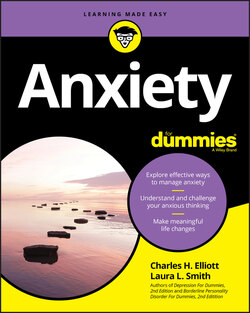Читать книгу Anxiety For Dummies - W. Doyle Gentry, Laura L. Smith - Страница 31
ANXIETY AND DRIVING WHILE BLACK
ОглавлениеAll parents of teenagers who are learning to drive are anxious. If you’ve ever been in the car with a brand-new driver, you understand what we’re talking about. When the teen finally gets a license, the fear persists for some months. Will my daughter remember to stop at stop signs or make a turn without crashing into the curb? Will my son speed or try to show off while driving with his friends?
But if you are a parent of a Black teen driver (especially males), your worries multiply. Will my son be pulled over and know exactly what to say and do? What do I tell him to help him stay safe? Though it isn’t fair or reasonable, parents of Black teens have to give “the talk.” Usually the talk contains a few important elements that are useful for most people who get pulled over, but essential for persons of color. Here are a few items that usually get covered in the talk:
While the officer approaches the car, roll down the window, turn off the ignition, and place your hands at the top of the steering wheel.
Don’t move your hands unless instructed to do so.
When asked for license and registration, move slowly and tell the officer what you are doing, especially if you need to access the glove compartment.
Be polite and cooperate.
Do what the officer asks.
It’s not a good idea to argue or be defensive.
Do not run or resist arrest.
Don’t make statements about what did or did not happen until you can talk to an attorney.
Again, it’s unfair that people of color must take greater care during police encounters than others. But statistics tell us that persons of color have a greater chance of being hurt or killed at a traffic stop. This is a time when a good dose of anxiety may save a life.
Anxiety poses a problem for you when
It lasts uncomfortably long or occurs too often. For example, if you have disturbing levels of anxiety most days for more than a few weeks, you have reason for concern.
It interferes with doing what you want to do. Thus, if anxiety wakes you up at night, causes you to make mistakes at work, or keeps you from going where you want to go, it’s getting in the way.
It exceeds the level of actual danger or risk. For example, if your body and mind feel like an avalanche is about to bury you but all you’re doing is taking a test for school, your anxiety has gone too far.
You struggle to control your worries, but they keep on coming. Even when you’re relaxing at the beach or on your most comfortable recliner, anxious thoughts continually run through your mind.
